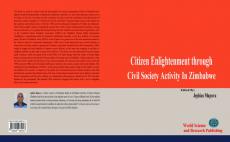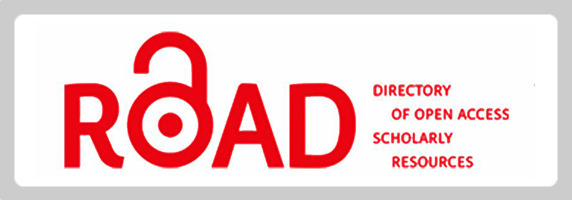Citizen Enlightenment through Civil Society Activity in Zimbabwe
Synopsis
The post-colonial period in Zimbabwe has been characterised by mixed reactions to the democratic dispensation of 1980. While it can be assumed that the fight for democracy in Zimbabwe seemingly ended with the attainment of political independence in 1980, events and political developments on the ground proved that this was not the case. The three decades from the attainment of political independence in 1980 became associated with a civil unrest in Matabeleland and parts of the Midlands (targeted at mostly the ethnic Ndebele) in which according to research by the Catholic Commission for Justice and Peace (CCJP), over 20 000 people died, with numerous reported to have been maimed and displacement. This was as a result of the vicious political dogfight for political supremacy between longstanding liberation war allies-the Zimbabwe African National Union Patriotic Front (ZANU PF) on one hand and the Patriotic Front- Zimbabwe African People’s Union (PF ZAPU) on the other, especially from around 1982 to 1987. In 1987, a truce by way of the Unity Accord was signed between the two political parties and liberation war allies. The Unity Accord merged PF ZAPU with ZANU (PF) paving the way for a one-party political system, which in its self, further opened up gaps as decision making became the sole preserve of the then ruling party-ZANU (PF). Despite international outcry on the level of brutality during this sad episode in the history of the post-colonial state, the ruling party did not bother to seek redress for the victims of the civil unrest that was commandeered by a special unit of Korean-trained forces of the Zimbabwe National Army (ZNA), in collaboration with other security sector functionaries such as the conventional intelligence unit, the military intelligence, as well as the police intelligence and the conventional police force.[1] To this day the victims are licking the wounds of the civil unrest. This political dispensation of political arrangement also further opened up gaps for a plethora of dynamic political developments, notably the rise of a civic virtue and the formation of pro-democracy civil society organisations which represented voices of dissent and disenchantment over the way political power was being dispensed as well as the gross violation of human rights in the country. Notable civic groups that formed during the early 1990s included the Zimbabwe Human Rights Organisation (ZimRights), the Legal Resources Foundation (LRF), the CCJP among others. The formation of these pro-democracy and human rights organisations was the first fissures that signalled that the ruling party had lost its lustre, especially taking into cognisance the brutality with which the civil unrest in Matabeleland and parts of the Midlands had been quelled.
With time the civil society movement in the country began to realise the need for a concerted effort to engage the increasingly intolerant state. More collaborative arrangements began to manifest themselves through the establishment of coalitions, linkages and working relationship between and among similar-minded civic groups. The Zimbabwe Congress of Trade Unions, the Zimbabwe National Students’ Union (ZINASU) were some of the most vibrant groups that attracted public attention by way they articulated workers and students’ issues respectively. The fact that these groups were on a collision course with government did not augur well with the state, leading to them being viewed as branded as habouring political ambitions. Some of the decisions that the government had made without due regard for input from the public included military intervention in the Democratic Republic of the Congo in August 1998 at a time when the country’s fiscus could not afford such a costly military adventure. Most of the civil society movement, which claimed to represent a wider section of the nation, was of the idea that such grand projects and interventions should have the blessing of the nation. What further incensed the public was that the perceived benefits that were to be derived from the DRC debacle were never realised, leading to more questions about the credibility and desirability of the Lancaster on which the Executive based its decision powers on the provisions of the constitution. Continued deliberations within these groups led to further disgruntlement over the way the ruling party was making costly public decisions without consulting the public. The combination of the ZCTU, ZINASU and other similar-minded pro-democratic civic groups as well as pro-active individuals and professional groups led deliberations on the need for a new people-driven constitution, culminating in the formation of the National Constitutional Assembly (NCA), a civic group that sought to spearhead the constitutional reform process in the country.
Continued marginalisation of civil society and the general public in decision making policies and the continued unabated with civil society being targeted for victimisation and in some cases, closure and prohibition of their operation after being accused of being regime change agents of western nations. However, despite the continued harassment, pro-democracy civic groups remained resilient, further taking the unprecedented move of collaborating and eventually contributing to the formation of a broad-based political party in 1999- the Movement for Democratic Change (MDC) which exhibited close links with the labour movement. The affinity between the new political outfit and the rest of the pro-democracy movement continued to grow and was manifested in various collaborative arrangements that they were involved in as they jointly sought to contribute to the restoration of democracy in the country. The most vivid collaborative linkages between the NCA, the ZCTU and the MDC manifested itself during the referendum to adopt a new government-sponsored constitution during which the civic groups and the MDC successfully campaigned for the rejection of the Constitutional Commission draft constitution.
Incensed by this rejection, ZANU PF realised that it had taken civil society and the general populace for granted. The results of the referendum were a protest vote from which ZANU PF learnt some lessons.

Downloads
Published
Series
License

This work is licensed under a Creative Commons Attribution-NonCommercial-NoDerivatives 4.0 International License.









